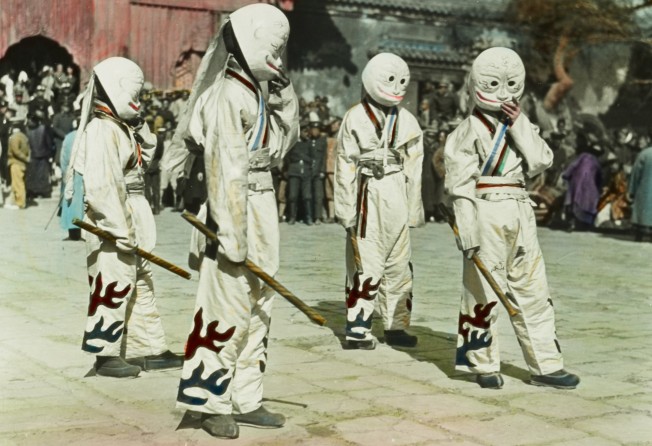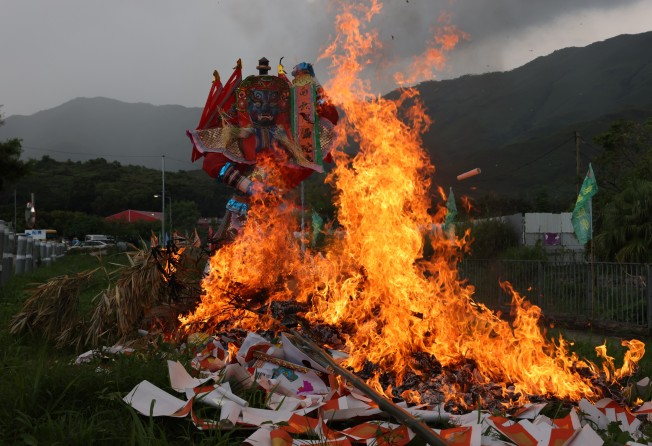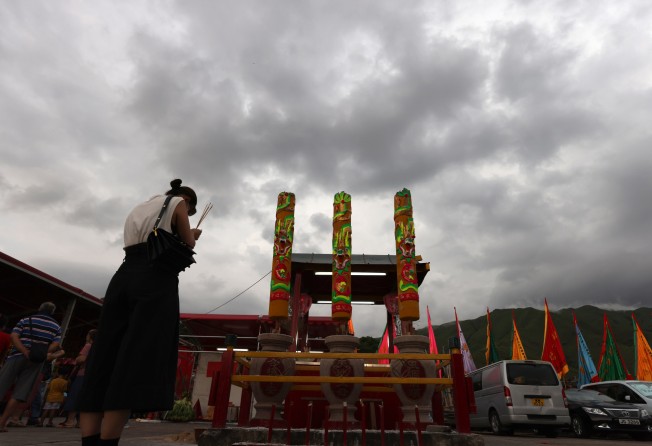
‘Chinese Halloween’ the Hungry Ghost Festival sticks to its roots, unlike this week’s celebrations
- Observed in the seventh month of the traditional Chinese calendar, the Hungry Ghost Festival is celebrated in different ways among Chinese communities
- The festival is a good example of how the Chinese, at least in historical times, were very open to foreign cultural influences

Shorn of its original spiritual or religious intent, Halloween, a contraction of All Hallows’ Eve, has become a day of fun and games for most people, and handsome profits for businesses. Instead of remembering and honouring the dead, children and adults go about in costumes getting high on sweets, or something stronger at clubs and bars.
Shopping centres and supermarkets are a sea of spectral black and lurid pumpkin-orange; coffee shop menus feature special flavoured coffees that are anything but; and cinemas are screening Halloween Kills, the latest instalment of the 43-year-old slasher franchise that simply refuses to die.
In Hong Kong, Halloween is probably more popular than the Chinese festival that’s associated with the dead, observed over two months ago.
In the seventh month of the traditional Chinese calendar, Chinese communities observe the Hungry Ghost Festival, as it is sometimes known in English, in different ways.

For Chinese Buddhists, the most popular origins story of the festival is that of the Buddhist holy man Maudgalyayana (Sinicised as Mulian) alleviating the hunger suffered by the soul of his dead mother, who had been evil in life.
After Mulian performed a special ritual on the 15th day of the seventh month, his mother’s soul was released from the realm of suffering. This story dovetailed with the virtue of filial piety, which is especially important to the Chinese. Actively promoted by rulers, the ritual and the associated festivities took root in China.
The 15th day of the seventh month is also important in Chinese folk beliefs. Originally a day of thanksgiving for the earth’s bounty, ancestor worship was eventually included in the observances. With the emergence of Taoist religion (which is very different from the philosophy of Taoism) in the early 3rd century, a Taoist deity became involved.
On this day, the Great Divine Ruler of Earth (Diguan Dadi) passes judgments on the dead, and Taoist religionists make offerings to him for the salvation of their ancestors’ souls. Over time, the reason for making the offerings expanded to include the salvation of wandering spirits who gathered to receive their judgment. Today, almost all the offerings are made to feed and appease these spirits.
The interaction between Buddhist tradition and Chinese folk beliefs over centuries gave rise to not one, but multiple Hungry Ghost Festivals, for different Chinese regions and language groups have their own associated customs.

For example, the Chinese in Hong Kong observe it on the 15th day of the seventh month, but in Malaysia and Singapore, celebrations go on for the entire month among the Chinese communities. There, the spirits are also entertained by singers, dancers and comedians in getai (“song stage”) performances, the contemporary itineration of xiqu, or traditional Chinese theatre, performed on makeshift stages at temples.
Whether getai or xiqu, there’s always a row of empty chairs up front for the spirits, who are the real guests-of-honour at the shows. Humans are graciously allowed to enjoy the performances sitting or standing behind them.
The Hungry Ghost Festival is a good example of how the Chinese, at least in historical times, were very open to foreign cultural influences. The synthesis of foreign Buddhist traditions and native Taoist religious beliefs into a syncretic festival that is still observed today in a variety of ways shows the possibilities of a receptive and undogmatic state of mind.
Having said that, Halloween, or at least the consumerist incarnation many Chinese lap up, is not exactly a tradition of great import and consequence, is it?